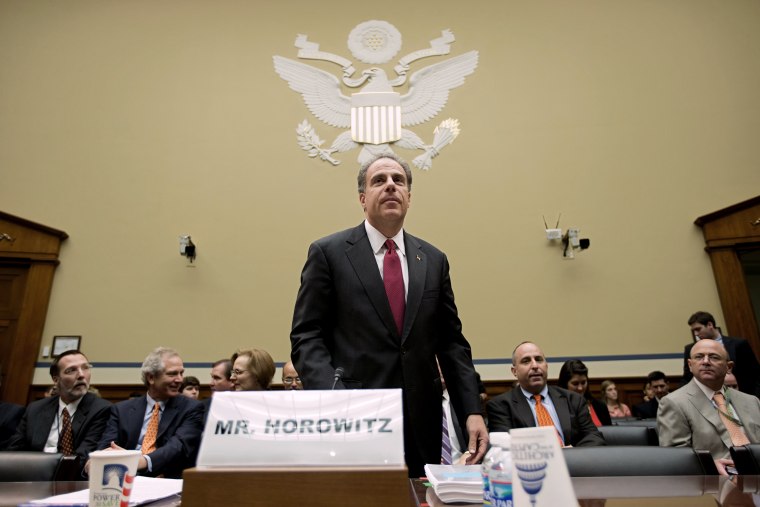Federal agencies like the FBI regularly obstruct the Justice Department’s watchdog office from conducting effective oversight, the Inspector General testified Tuesday before Congress.
Michael Horowitz told the Committee on Oversight and Government Reform that his office has had to ask Attorney General Eric Holder or Deputy Attorney General James Cole to intercede on the IG’s behalf. Horowitz also testified that some reports, on how the FBI conducts investigations related to terrorism, have seen long delays due to agency stonewalling.
“Access by Inspectors General to information in agency files goes to the heart of our mission to provide independent and non-partisan oversight,” Horowitz said.
A 1978 law gives Inspectors General the power to request documents and information from the agencies they are tasked with policing. But according to Horowitz, many agencies have recently been ignoring the statute. “The IG Act expressly provides that an independent Inspector General should decide whether documents are relevant to an OIG’s work,” Horowitz said. “However, the current process at the Department instead places that decision and authority in the leadership of the agency that is being subjected to our oversight.”
The Justice Department is not the only agency affected by a lack of transparency. Forty-seven inspectors generals signed a letter in August arguing that obstructionism happens throughout the federal government. In one instance, the Peace Corps withheld records related to sexual assaults committed against volunteers. The Inspectors General who signed the letter urged Congress to take action.
According to the Associated Press, an FBI spokesman defended the Bureau, saying that it only withholds information in a “very limited number of instances” where more time to review records is needed.
The Obama administration has faced criticism for its lack of transparency on a host of issues, from drone strikes to domestic surveillance to torture. The White House has also used the 1917 Espionage Act more than any other administration to prosecute government employees for leaking information to the media.
Five months after approving its release, the Senate Intelligence Committee has still not released a declassified version of its report on government torture during the Bush years, and the DOJ is still pursuing its case against reporter James Risen to force him to testify about a confidential source.
